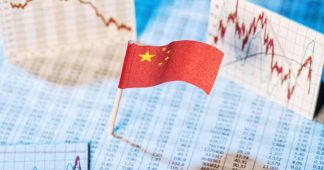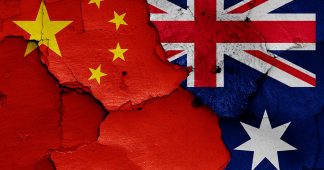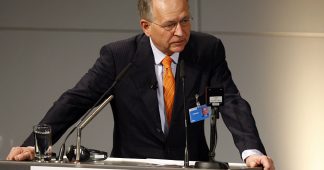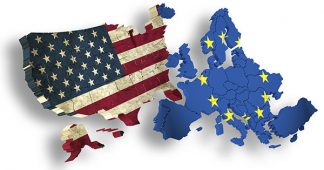Transatlantic parliamentary alliance launched against China – with substantial involvement of a German Green politician.
BERLIN/WASHINGTON (Own report) – Politicians from the German Green Party are playing a leading role in a new transatlantic anti-China alliance of legislators. Anti-Chinese hardliners, Marco Rubio and Bob Menendez, are considered the driving forces in the Inter-Parliamentary Alliance on China (IPAC), launched last Friday, currently involving members of twelve parliaments. Officially, the organization seeks to forge a common western policy toward China. A concrete aim appears to be the implementation also in Europe of the US sanctions policy against Beijing. IPAC is mobilizing legislators, there where national governments are still rejecting the sanctions. In the wings of the Munich Security Conference, last February, Reinhard Bütikofer, a Green Party member of the EU parliament had already proposed the creation of such a legislator pressure group. He is now acting as IPAC co-chairman. The alliance, which is calling for the development of “security strategies” against China, has an Ex-CIA specialist on its advisory board.
IPAC
The Inter-Parliamentary Alliance on China (IPAC) was launched last Friday by legislators of eight parliaments. In the meantime, it includes politicians of twelve parliaments – eleven national [1] and the EU parliament. States, which recently have shown a particularly aggressive attitude toward China, are also involved: the USA, Australia and Japan. US Senators Marco Rubio (Republican) and Bob Menendez (Democrat), who, since some time, have distinguished themselves as anti-China hardliners, are playing a leading role in IPAC. Two politicians from the German Green Party, Margarete Bause, as member of the German Bundestag and Reinhard Bütikofer, as member of the EU parliament are among the Alliance’s Co-Chairs. Likewise, Michael Brand, Spokesperson for Human Rights in the CDU/CSU Bundestag group is also involved.
Typical Western Double Standards (I)
IPAC explicitly aims at promoting a “coherent response” to China’s rise.[2] The new alliance – comprising transatlantic states and close allies, Japan and Australia – is demanding that China abide by standards that western powers have repeatedly violated: The People’s Republic of China must be held to the “standards of the international legal order.” There is no mention of the wars against Yugoslavia (1999), Iraq (2003) or Libya (2011), which western powers have waged in various constellations in violation of international law. IPAC founding member Bütikofer, for example, supported the war against Yugoslavia in 1999 as the political administrator of the then coalition governing Green Party. IPAC also declared that China be held to the standards of the rules-based order of the WTO. The Trump administration’s practices violating those rules are not mentioned. Beijing should also not be permitted to compromise the sovereignty of recipient countries for example through credits. IPAC does not mention the practice of the western dominated International Monetary Fund (IMF) imposing draconian austerity programs against the will of credit recipients.
“At Last a Sanctions Mechanism”
It is particularly becoming apparent that the IPAC seeks to have Europe enforce the US sanctions policy. US Senators Rubio and Menendez are the main forces behind the introduction of the relevant US laws, which, using the excuse of seeking to take action against Beijing’s measures in Hong Kong and in Xinjiang, open the door to punitive actions against the People’s Republic of China. US President Donald Trump should soon be signing the Xinjiang bill into law. The bill pertaining to Hong Kong has already been in effect since last November. Bütikofer recently spoke in favor of “at last installing a concerted pan-EU global sanctions mechanism,” to eventually “be able to “impose sanctions for human rights violations on Chinese officials.”[3] IPAC has chosen this means of having influence through parliaments, where the US government has yet to be successful in forcing other governments through direct pressure to adopt its sanctions policy. One example is Great Britain, where, since some time, particularly pro-USA Tory backbenchers are adamantly insisting that their government’s decision to a limited Huawei participation in setting up the British 5G network be revised. IPAC now permits such practices to be expanded.
Continue reading at www.german-foreign-policy.com










